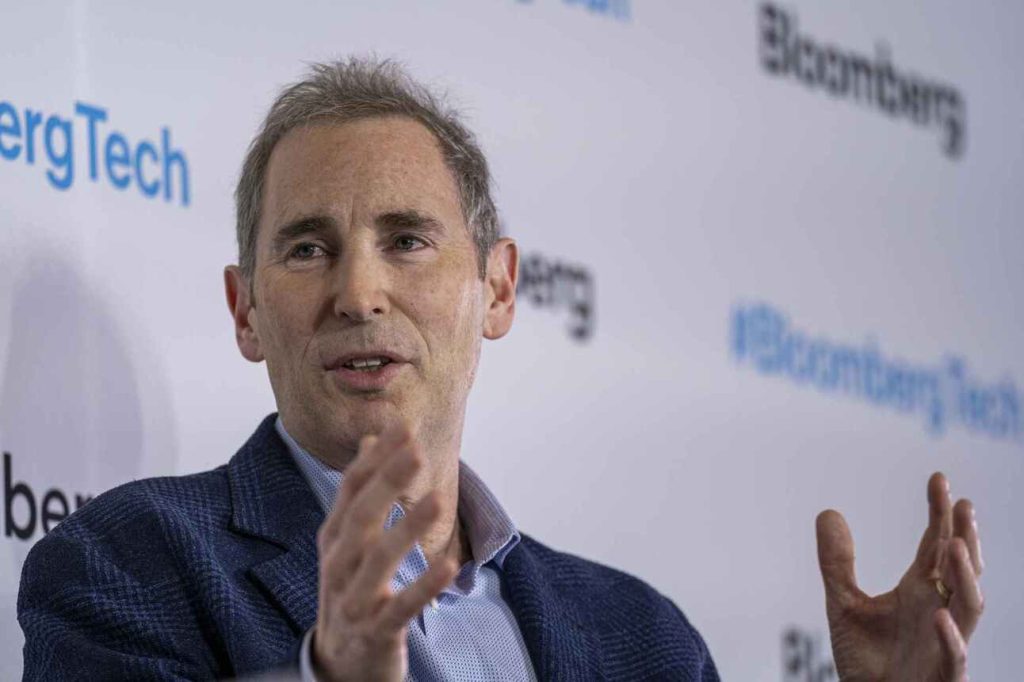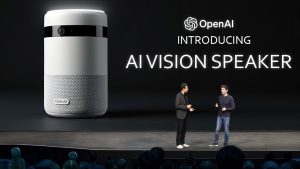Amazon Challenges AI Coding Skeptics

In the evolving world of technology, the debate over AI’s role in coding continues. Can AI really enhance productivity without introducing new issues? Amazon’s latest data offers some compelling evidence.
The tech giant recently revealed impressive statistics that may silence those who doubt the effectiveness of AI in software development. These insights could mark a significant shift in how we perceive AI’s capabilities in the coding arena.
Amazon’s AI Assistant Boosts Efficiency
Time is crucial in the coding world, where every minute counts. One of the hottest debates is whether AI can truly enhance productivity and prove to be a cost-effective investment. Amazon’s CEO, Andy Jassy, is a firm believer, presenting compelling evidence.
In a recent announcement, Jassy disclosed that Amazon’s generative AI assistant, Q, saved the company approximately 4,500 developer-years. Tasks that once took 50 days now take just hours, demonstrating the assistant’s efficiency.
This efficiency translates to significant savings, boosting productivity by $260 million annually.
Skeptics’ Concerns and Amazon’s Rebuttal
Despite these impressive numbers, skeptics argue that incorporating AI like Q might complicate workflows, potentially introducing errors developers must fix. This concern isn’t baseless; a Stanford study found that AI assistants could lead to less secure code.
However, Amazon counters this by claiming that increased efficiency allows developers to focus more on fixing bugs and improving security. Therefore, their apps are now more secure than ever.
Investors seem convinced. Since last year, generative coding startups have collectively raised nearly $1 billion, indicating strong confidence in AI’s future in coding.
AI as a Game-Changer in Coding
Coding is a multi-step process requiring careful reasoning. Amazon believes advanced AI programmers can push the boundaries of what’s possible in software development.
Hadi Partovi, an entrepreneur, likens coding without AI to writing without a word processor. This analogy highlights the transformative potential of AI tools in coding.
The belief is that AI can handle repetitive tasks, enabling developers to tackle more complex issues, thus advancing the entire field.
The Future of AI-Powered Apps
The future promises even more sophisticated AI applications. AI is still in its nascent stages, and the most significant innovations might still be on the horizon.
YCombinator’s Jared Friedman suggests we might see an explosion of new AI-powered apps, much like how smartphone applications emerged years after the technology became widespread.
These advancements could change how we use technology daily, bridging gaps and creating more efficient processes in various industries.
David Park’s Inspirational Journey
David Park, co-founder of Jenni AI, is a testament to AI’s potential. His journey from struggling startups to massive success while battling cancer is awe-inspiring.
Park’s story underscores the resilience and innovation driving the AI industry. His experiences shed light on the personal dedication behind these technological advancements.
By sharing his insights, Park provides a valuable perspective on building AI products and scaling growth channels, offering lessons for future entrepreneurs.
Investors’ Growing Interest in AI
The surge in funding for AI startups indicates growing confidence in the technology’s potential.
Generative coding startups have raised nearly $1 billion since the beginning of last year, showcasing strong investor faith.
Such investments signal that AI tools are not just a trend but a cornerstone for future technological developments.
Conclusion
Amazon’s revelations about its AI assistant’s efficiency could mark a pivotal moment in the tech industry’s view on AI coding tools.
Despite skepticism, the improvements in productivity and security, along with significant investor interest, highlight AI’s transformative potential.
As Amazon showcases the substantial benefits of its AI assistant in coding, the industry might be on the cusp of a significant transformation.
AI’s ability to enhance productivity and security, coupled with growing investor confidence, indicates a bright future for AI in software development.






